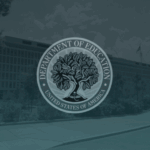Diversity Through Censorship
It’s interesting to see the degree to which proponents of diversity will censor speech in order to achieve that elusive pluralism, no matter how innocuous the expression is. “A federal appeals court has ruled that school officials in Naperville were not justified in forbidding a student from wearing an anti-gay T-shirt,” CBS reported on March 1, 2011. “The U.S. 7th Circuit Court of Appeals ruled Tuesday that Indian Prairie School District 204 could not prohibit students from expressing their religious views.”
“The case stemmed from an April 2006 incident at Neuqua Valley High School in Naperville [ILL]. Heidi Zamecnik, a senior at the school at the time, got in trouble for wearing a T-shirt reading, ‘MY DAY OF SILENCE, STRAIGHT ALLIANCE’ on one side, and ‘BE HAPPY, NOT GAY,’ on the other.
“The shirt was in response to the National Day of Silence. It’s an event where students don’t speak to highlight discrimination against the gay and lesbian community.”
“The school’s dean demanded Zamecnik remove it or be sent home for the day, citing school policy that prohibits clothing with offensive messages.” Heidi, better be careful. In higher education, such thoughts are held in even lower esteem.
“But apparently, ‘objectionable’ is in the eye of the beholder,” Tony Perkins of the Family Research Council noted in his Washington Report on March 14, 2011. “I experienced that first-hand on Friday when I was invited to speak at my alma mater in Baton Rouge.”
“As a graduate of the Public Administration program at Louisiana State University, I’ve spoken in class before. This time, I was met by about 50 homosexual activists with signs and bullhorns demanding that I be kicked off campus because of my ‘anti-gay’ views. My lecture had nothing to do with homosexuality; I discussed Dr. Pat Fagan’s data, which shows the importance of family formation and religious participation on societal outcomes. But the intolerance from outside quickly spilled into the Q&A, which was dominated by a few openly homosexual students and sympathizers who wanted to debate ‘gay rights’ and make clear that ‘opposing’ views had no validity—regardless of the evidence to the contrary. Following the lecture, several students did express appreciation for the substance of my lecture and my response to the verbal assaults. Unfortunately, even though the majority of people disagree with what the homosexual activists are saying and doing, they’re afraid to be censured by the boisterous minority so they remain silent. And that’s the real end game.”
Malcolm A. Kline is the Executive Director of Accuracy in Academia.
If you would like to comment on this article, e-mail contact@academia.org




